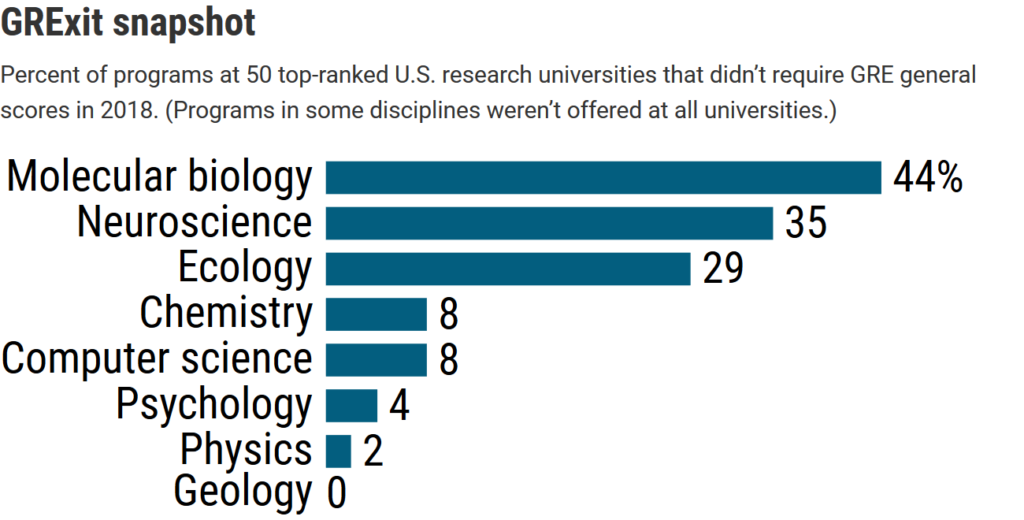When I first came to know that GRE is required to pursue higher study in the US, I completely ignored considering the US for my Ph.D. I did not want to invest my time into something that I would not need in my future research/work. instead of reading tons of vocabulary ? and practicing high-school math problems ?, I focused on expanding research knowledge – things that would help.
GRE is going away!
Those who are like me – who do not want to study for GRE (who does? ?), it is good news that GRE is going away! In the last few years, most of the top universities are gradually dropping the GRE requirement. It has been 80 years since the top US universities introduced GRE. And now, they are the ones who are getting rid of it. Could we say that – through the end of an 80 years-long experiment, GRExit once again points out that human capabilities can not be measured using a unified scoring system (See here [1])?
#GRExit Trend
Recently, I was at a conference, where I had the opportunity to hear directly from Scott Barolo, Director of the Program in Biomedical Sciences (PIBS) at University of Michigan. Dr. Barolo is the pioneering figure who made this pivotal decision to drop GRE requirement from PIBS admission requirement in 2017 [2]. Soon after this, other major universities including Harvard, Caltech, Carnegie Mellon, Cornell, Johns Hopkins, and many others followed the same path [3,4]. You can find an almost full list of Bio/Medical programs that do not require GRE here [4].

As a Health/Bio-medical science student, I am very happy to see that Biological science programs are leading in this paradigm shift. Computer science and other programs are also welcoming this change gradually.
Prepare yourself for the opportunity!
It is encouraging to see this GRExit movement when I think about future students. It makes more sense to take students through the “evidence-based” admission system. Meaning, admitting students based on their expertise and experience evidence. As a result, students will be able to give full focus on something that will “actually” help in their higher study. Furthermore, given the quality of higher education in the US, it will surely open the window of opportunity for many students to get the proper facility that they deserve for their higher study. Therefore, I would recommend students to go through the programs and universities you are interested in and prepare yourself accordingly.
Sources:
[1] GRE vs Grad School Success: https://synapticsketch.wordpress.com/2019/01/11/the-gre-a-sinister-sieve-screening-out-stem-talent/
[2] University of Michigan dropped GRE requirement in 2017: https://www.sciencemag.org/careers/2017/08/updated-biomedical-phd-program-major-research-university-drops-gre-requirement
[3] Trends of GRExit: https://www.sciencemag.org/careers/2019/05/wave-graduate-programs-drop-gre-application-requirement
[4] Programs that dropped GRE requirement: https://docs.google.com/spreadsheets/d/1MYcxZMhf97H5Uxr2Y7XndHn6eEC5oO8XWQi2PU5jLxQ
